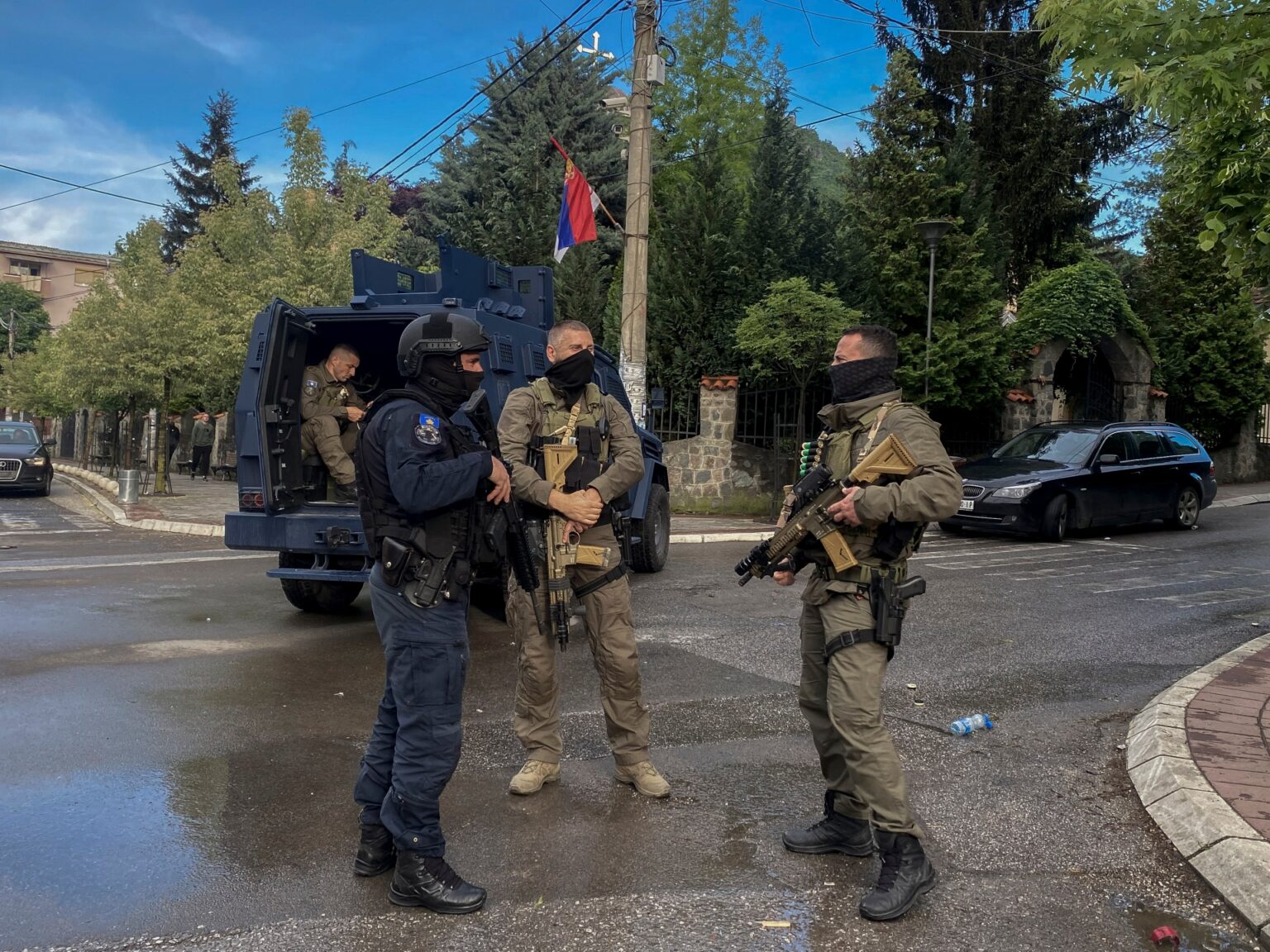NATO chief Jens Stoltenberg has called on Pristina to de-escalate tensions after placing army on high alert.
NATO chief Jens Stoltenberg has called on Kosovo to tone down tensions with Serbia, two days after clashes between Kosovan police and protesters who are opposed to Albanian mayors taking office in ethnic Serbian areas.
“Pristina must de-escalate & not take unilateral, destabilising steps,” Stoltenberg said in a tweet on Sunday.
The transatlantic military alliance’s secretary-general said he had spoken to European Union foreign policy chief Josep Borrell about Kosovo. He added that Pristina and Belgrade must engage in the EU-led dialogue.
Serbs, who form the majority of the population in Kosovo’s northern region, do not accept its 2008 declaration of independence from Serbia and still see Belgrade as their capital more than two decades after the war ended in 1999.
They refused to take part in local elections in April, and Albanian candidates won all four municipalities with a 3.5 percent turnout. Backed by Belgrade, they said they would not accept the mayors and that they do not represent them.
On Friday, small groups of ethnic Serbs in northern Kosovo clashed with police while trying to block the entrance of municipal buildings to prevent the recently elected officials from entering.
Police fired tear gas and several cars were set ablaze. Three out of four mayors were escorted into their offices by police, who were pelted with rocks and responded with tear gas and water cannons to disperse the protesters.
In the wake of the latest unrest, Serbian President Aleksandar Vucic ordered the army to be placed on high alert and “start moving” towards the border with Kosovo.
On Saturday morning, Vucic chaired a meeting of the National Security Council, which adopted a plan of “security activities … aimed at strengthening Serbia’s defence capabilities”, the Serbian president’s office said in a statement.
The presidency added that “Serbia’s armed forces remain in a state of maximum alert until further notice”.
A joint statement from the embassies of the United States, United Kingdom, Italy, France and Germany, known as the Quint group, and the EU office in Pristina warned Kosovo against any other measures to force access to the municipality buildings.
“We strongly caution all parties against other threats or actions which could impact on a safe and secure environment, including freedom of movement, and that could inflame tensions or promote conflict,” Quint and the EU said.
“New unilateral actions will negatively impact relations with the Quint countries and the EU.”
The US, UK and EU are Kosovo’s main backers as the country is still not a United Nations member due to objections from Serbia, Russia, China and others.


